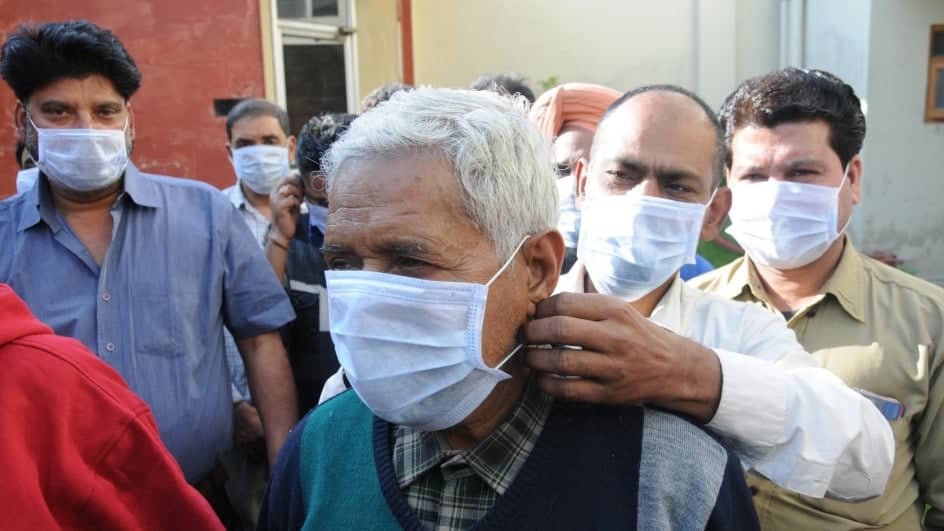Coronaviruses are a family of viruses that can cause infections such as the common cold, severe acute respiratory syndrome (SARS) and Middle East respiratory syndrome (MERS). In 2019, coronavirus was identified in China as the cause of a disease outbreak.
Coronaviruses are zoonotic, which means they can be transmitted between animals and people. A comprehensive research was carried out to find about the illness and the results was that, SARS-CoV was transmitted from civet cats to humans and MERS-CoV from dromedary camels to humans. The virus is now known as the severe acute respiratory syndrome coronavirus 2 (SARS-CoV-2). The disease it causes is called coronavirus disease 2019 (COVID-19).
The most common signs of infections include fever, respiratory symptoms, cough, and shortness of breath, followed by breathing difficulties and lung problems. In more severe cases, infection can cause severe acute respiratory syndrome, pneumonia, kidney failure and even death.
Cases of COVID-19 have been reported in a number of countries and according to World Health Organization (WHO), it has been declared a ‘Pandemic’, due to the severity of the illness and its widespread contamination rate.
Symptoms of COVID-19
Signs and symptoms of COVID-19 may appear two to 14 days after exposure and can include:
- Fever
- Cough
- Shortness of breath or difficulty breathing
The severity of COVID-19 symptoms can range from very mild to severe. Children and people who are sixty and above are more susceptible to contracting the virus and people who are have various health problems and illness like, diabetes, blood pressure, heart conditions are at a higher risk.
When to see a doctor ?
It is advisable to seek medical attention as soon as you start showing any signs of fever, cough or breathing difficulty or if you have been in contact with an infected person. If you have travelled internationally or within the infected state or country, it is advisable to check in with your doctor and get tested for COVID-19.
Causes
It is contagious and spreads through contact with an infected person, or it may be spread by respiratory droplets released when someone with the virus coughs or sneezes.
Risk factors for COVID-19 include:
- Recent travel from or residence in an area with ongoing spread of COVID-19 as determined by CDC or WHO
- Close contact with someone who has COVID-19 — such as when a family member or health care worker takes care of an infected person.
Prevention
Although there is no vaccine available to prevent infection with the new coronavirus, there are following preventive measures that can be taken to restrict the spread of the virus;
-
- Washing hands regularly with soap, or use an alcohol-based hand sanitizer.
- Covering your mouth and nose with your elbow or tissue when you cough or sneeze. Avoid touching your eyes, nose and mouth. (Hands touch many surfaces and can pick up viruses. Once contaminated, hands can transfer the virus to your eyes, nose or mouth. From there, the virus can enter your body and can make you sick.
- Avoid close contact with anyone who is sick. . (When someone coughs or sneezes they spray small liquid droplets from their nose or mouth which may contain virus. If you are too close, you can breathe in droplets, including the COVID- 19 virus if the person coughing has the disease.
- Maintain at least 1 metre (3 feet) distance between yourself and anyone who is coughing or sneezing.
- Avoid sharing dishes, glasses, bedding and other household items if you’re sick.
- Clean and sanitize surfaces you often touch.
- Stay home from work, school and public areas if you’re sick.
When to wear mask ?
- If you are healthy, you only need to wear a mask if you are taking care of a person with suspected COVID-19 infection
- Wear a mask if you are coughing or sneezing.
- Masks are effective only when used in combination with frequent hand-cleaning with alcohol-based hand rub or soap and water.
- If you wear a mask, then dispose of it properly.
WHO also recommends that you:
- Avoid eating raw or undercooked meat or animal organs.
- Avoid contact with live animals and surfaces they may have touched if you’re visiting live markets in areas that have recently had new coronavirus cases.






